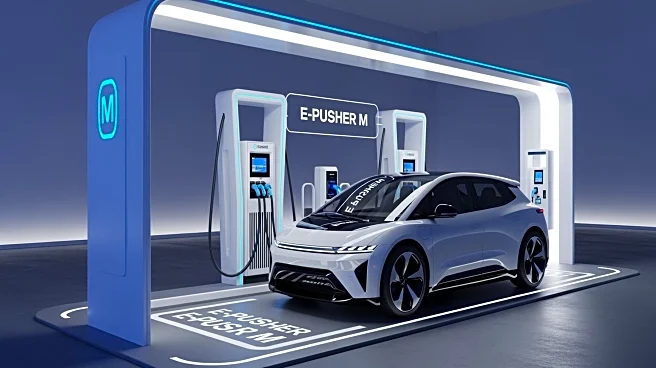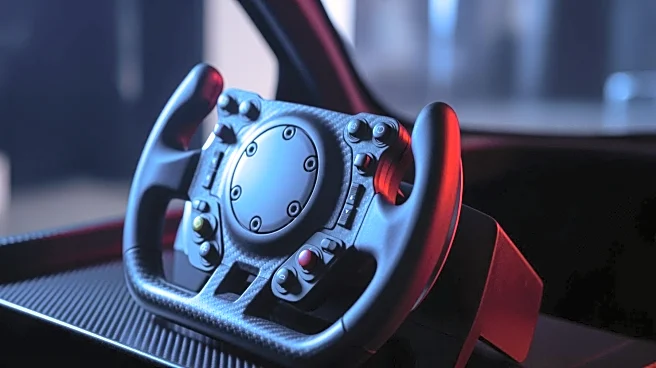What's Happening?
EST-Floattech has played a pivotal role in the development of the E-Pusher M, a fully electric push boat ordered by the Rotterdam-based sand and transport company ROS. This vessel is a key component in ROS's
emission-free transport chain, which includes a 1-megawatt fast-charging station with a Megawatt Charging System (MCS) plug. The E-Pusher M, equipped with EST-Floattech's battery system, has already been operational, successfully completing voyages in Rotterdam. The project highlights the collaboration between EST-Floattech, KOTUG, and other partners, aiming to enhance sustainable inland shipping.
Why It's Important?
The introduction of the E-Pusher M marks a significant advancement in sustainable maritime transport, particularly in the Port of Rotterdam. By utilizing EST-Floattech's battery technology, the push boat operates without noise pollution or CO2 emissions, setting a precedent for zero-emission logistics. This initiative not only contributes to the greening of the maritime sector but also positions Dutch companies as leaders in sustainable innovation. The project underscores the importance of collaboration in achieving environmental goals and could inspire similar initiatives globally, promoting a shift towards cleaner transport solutions.
What's Next?
As the E-Pusher M continues its operations, stakeholders will likely monitor its performance and impact on emission reduction. The success of this project could lead to further investments in similar technologies and infrastructure, potentially expanding the use of electric vessels in other regions. Additionally, the collaboration model demonstrated here may serve as a blueprint for future projects aiming to achieve sustainability in various sectors. Continued support from local government and industry leaders will be crucial in maintaining momentum towards a greener future.
Beyond the Headlines
The E-Pusher M project highlights the broader implications of transitioning to sustainable transport solutions. It raises questions about the scalability of such technologies and the potential economic benefits of reducing emissions. The project also emphasizes the role of innovation in addressing climate change, showcasing how technological advancements can align with environmental goals. As more companies adopt similar practices, there could be a cultural shift towards prioritizing sustainability in business operations, influencing policy decisions and consumer behavior.









